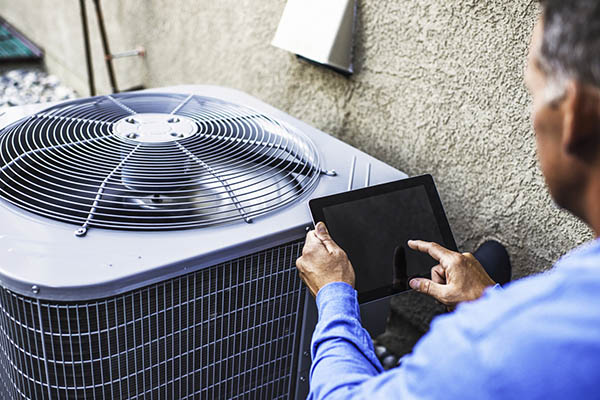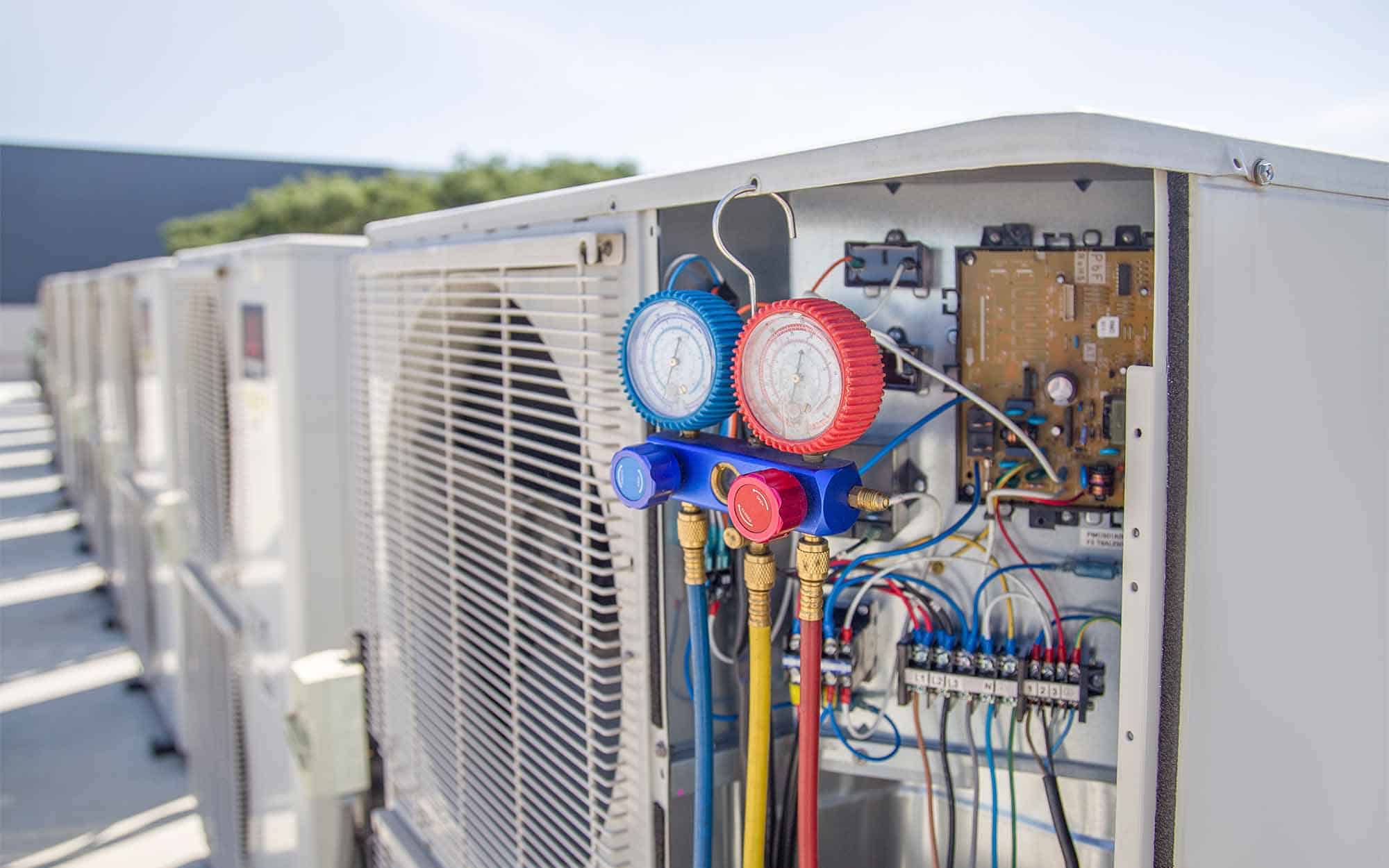Comparing Options for heat pump installation ooltewah tn
Comparing Options for heat pump installation ooltewah tn
Blog Article
Picking In Between a Heatpump and Furnace: Trick Considerations for Your Heating And Cooling Demands
When evaluating home heating options for a/c needs, the choice between a heat pump and a furnace can be intricate. Each system provides distinct benefits tailored to specific environments and energy effectiveness objectives. Comprehending these distinctions is essential for making an informed option. Key variables such as setup expenses and ecological influence further make complex the selection procedure. Which option really straightens with one's comfort and sustainability preferences? The adhering to sections will discover these factors to consider carefully.
Understanding Warmth Pumps: Just How They Work and Their Benefits
While lots of house owners take into consideration various home heating alternatives, understanding how heatpump feature and their advantages can considerably influence their decision. Heat pumps operate by moving warmth instead of generating it. In the winter months, they extract warmth from the outside air or ground and move it inside, while in the summer, they reverse this procedure, cooling down the home by expelling warmth outside. This dual functionality makes them functional for year-round environment control.One of the primary benefits of heatpump is their power efficiency. They use considerably less electrical power compared to standard furnace, potentially leading to lower utility bills (heat pump replacement ooltewah tn). In addition, warm pumps have a smaller sized carbon footprint, making them an ecologically friendly option. They additionally call for much less upkeep than standard systems, adding to long-term cost savings. In general, comprehending the auto mechanics and advantages of heatpump can assist house owners make informed decisions regarding their heating and cooling requirements
Discovering Furnaces: Kinds, Procedure, and Advantages
Heating systems are available in different kinds, consisting of gas, electric, and oil versions, each with unique operational devices. Comprehending these differences is vital, as they influence efficiency and heating efficiency. In addition, heaters use many benefits, such as consistent heat result and dependability in colder environments.
Kinds of Furnaces
Heating unit can differ substantially in design and operation, with heaters being a prominent selection amongst house owners. There are several kinds of heaters, each utilizing various gas sources and modern technologies. Gas furnaces are typical, leveraging gas to create heat efficiently. Electric heaters, on the other hand, utilize electrical resistance to produce warmth, usually preferred for their straightforward installment. Oil heating systems, while much less common, work in areas with restricted gas accessibility (furnace replacement). Additionally, condensing heating systems optimize energy efficiency by recycling and capturing exhaust gases. Each type runs with a system of heat exchangers and ductwork to disperse cozy air throughout a home. Comprehending the differences between these heating system kinds is important for notified a/c choices
Benefits of Heaters
For house owners seeking trusted warmth throughout cool months, the advantages of heating systems are substantial. Heating systems offer consistent home heating, making certain also temperatures throughout the home. They are particularly effective in severe cold, often outshining heatpump in frigid conditions. Various kinds, consisting of gas, electric, and oil furnaces, provide adaptability to meet diverse requirements and preferences.Furnaces likewise often tend to have reduced preliminary installation costs compared to heatpump, making them a much more easily accessible alternative for many. Their robust design adds to a much longer life-span, with several devices lasting over 15 years with proper maintenance. Furthermore, contemporary heaters are frequently furnished with sophisticated technology for improved efficiency, which can lead to minimized power expenses. Generally, heating systems stay a trustworthy selection for reliable home heating.

Energy Efficiency: Contrasting Warmth Pumps and Furnaces
When contrasting energy effectiveness in between heatpump and heating systems, the Seasonal Energy Effectiveness Ratio (SEER) plays a vital function in establishing performance. Furthermore, a functional cost analysis reveals the lasting economic implications of each system. Understanding these aspects can lead homeowners in making educated decisions regarding their home heating options.
Seasonal Energy Effectiveness Ratio
Energy effectiveness plays an essential role in the decision-making process in between heatpump and furnaces, especially when thinking about the Seasonal Energy Efficiency Proportion (SEER) This statistics actions the cooling efficiency of warm pumps over an entire cooling season, providing a standardized method to examine performance. Greater SEER rankings show better power performance, converting to lower energy consumption and lowered utility bills. In comparison, heaters are generally examined utilizing the Annual Fuel Usage Efficiency (AFUE) score, which shows heating efficiency. When comparing these 2 systems, homeowners should focus on SEER scores for heatpump, as they directly impact total energy savings and ecological sustainability. An extensive understanding of SEER can notably influence the lasting contentment and cost-effectiveness of the chosen heating and cooling solution.
Functional Cost Evaluation
Recognizing the operational prices related to heatpump and heaters is important for home owners reviewing their choices. Warmth pumps usually provide greater energy effectiveness, converting electrical energy right into warmth with marginal waste. This causes reduced regular monthly energy costs, specifically in moderate environments. Conversely, conventional heaters, particularly gas models, may have lower ahead of time prices yet can sustain higher functional expenditures in time due to sustain rates and efficiency ratings.Moreover, warmth pumps can work as both home heating and cooling down systems, potentially lowering the need for different heating and cooling systems. While initial financial investments for heatpump may be greater, their long-term cost savings in energy effectiveness can make them an extra cost-efficient choice for lots of homes. Cautious evaluation of neighborhood energy prices is vital to identify the very best alternative.
Setup Prices: What to Anticipate for every Heater
Installation expenses for heating unit can differ substantially in between heatpump and furnaces, affecting homeowners' decisions. Heatpump normally have greater ahead of time installation costs, commonly ranging from $3,500 to $8,000, depending upon the system size and intricacy of setup. This includes the exterior device, interior handling system, and essential ductwork adjustments. Alternatively, heaters often tend to have lower preliminary costs, averaging in between $2,500 and $6,000, which can be appealing for budget-conscious home owners. Nonetheless, setup expenses can raise if substantial ductwork is required.Moreover, the option of gas kind for heaters-- gas, propane, or useful site electrical-- can also affect installment costs. While heatpump provide energy efficiency, their first financial investment might prevent some purchasers. Eventually, reviewing setup costs along with long-lasting cost savings and effectiveness will certainly aid property owners in making informed choices concerning their heating unit.
Climate Factors To Consider: Which System Carries Out Much Better in Your Area
Just how do environment problems influence the performance of heating unit? The performance of heatpump and heaters can differ substantially depending upon the local climate. In moderate environments, heatpump stand out by efficiently transferring warm from the outside air, making them an energy-saving choice. Their effectiveness decreases in extremely cool temperature levels, where they might struggle to extract enough heat. Conversely, heating systems, especially gas models, provide trustworthy and regular warmth no matter exterior problems, making them more suitable in colder regions.In areas that you can try this out experience milder winters months, warm pumps can operate properly year-round, supplying both heating & cooling. In comparison, areas with rough winter seasons frequently gain from the effectiveness of heaters. Eventually, recognizing the local environment is necessary when deciding in between a warmth pump and a heating system, as it straight influences their functional effectiveness and total performance.
Maintenance Requirements: Long-Term Look After Heat Pumps vs. Furnaces
While both warm pumps and heating systems need routine maintenance to guarantee peak performance, their specific demands and treatment routines differ significantly. Heaters generally require less frequent attention, with annual inspections sufficing to check for gas leakages, tidy filters, and evaluate general performance. Their less complex design frequently enables simple repairs.In contrast, heat pumps require biannual upkeep because of their dual duty in heating & cooling. This includes cleaning coils, inspecting refrigerant degrees, and guaranteeing that both the interior and outside systems work at their ideal. Furthermore, heatpump maintenance commonly involves even more intricate components, making specialist servicing essential.Neglecting upkeep can result in reduced performance and raised power prices for both systems. Eventually, homeowners need to think about these long-term care needs when choosing between a warm pump and a heating system, as positive upkeep can expand the lifespan and performance of either system significantly.
Ecological Impact: Choosing a Sustainable Home Heating Option
The ecological effect of heating unit is a vital examination for home owners seeking sustainable options. Heatpump are normally much more energy-efficient than traditional furnaces, as they transfer warmth instead than my response generate it, greatly reducing carbon discharges. By using renewable power resources, such as air-source or geothermal heatpump, homeowners can even more reduce their environmental footprint.On the various other hand, gas heating systems release greenhouse gases and add to air contamination, though they usually give greater warm outcome. Improvements in modern technology have actually led to the development of high-efficiency heating systems that reduce emissions.Ultimately, choosing a heating system involves weighing effectiveness against ecological influence. House owners are encouraged to assess neighborhood energy resources and incentives for sustainable systems, making sure a selection that aligns with both personal comfort and environmental duty. The decision influences not only instant convenience yet likewise lasting sustainability and environmental health.
Frequently Asked Inquiries
Exactly How Long Do Heat Pumps and Furnaces Usually Last?
The life-span of warm pumps normally varies from 15 to twenty years, while heaters can last in between 15 to three decades. Routine upkeep significantly impacts their long life and performance in giving heating services.
Can I Utilize a Heatpump in Exceptionally Cold Climates?
Warm pumps can run in exceptionally chilly climates, however their performance lessens as temperatures drop. In such problems, additional heating sources might be required to preserve comfortable indoor temperatures and guarantee peak performance.

What Is the Sound Degree of Heat Pumps Versus Furnaces?
The noise degrees of warmth pumps and heating systems vary considerably. Typically, warm pumps operate even more silently than typical furnaces, making them preferable for those sensitive to seem, while heating systems may generate louder functional noises throughout heating cycles.
Are Warm Pumps Suitable for Both Cooling And Heating?
Heatpump are certainly ideal for both heating & cooling (heat pump service). They work by moving heat, offering efficient temperature level control year-round, making them a flexible choice for home owners seeking an all-in-one a/c remedy
What Size Furnace Do I Need for My Home?
Determining the proper dimension heating system for a home requires evaluating elements such as square video footage, insulation high quality, neighborhood climate, and the home's design. Consulting an expert can guarantee a precise evaluation and suitable comfort. Warmth pumps usually use higher power efficiency, converting electric energy right into warmth with minimal waste. In moderate environments, warmth pumps succeed by successfully transferring warmth from the outdoors air, making them an energy-saving option. On the other hand, heating systems, specifically gas versions, supply reliable and constant warm no matter of outdoor problems, making them better in colder regions.In areas that experience milder winters, heat pumps can operate effectively year-round, supplying both heating and cooling. Heat pumps are typically much more energy-efficient than standard heating systems, as they transfer heat rather than create it, considerably minimizing carbon exhausts. By utilizing sustainable power sources, such as geothermal or air-source warm pumps, homeowners can further minimize their eco-friendly footprint.On the various other hand, natural gas heating systems discharge greenhouse gases and contribute to air contamination, though they commonly offer greater warm result.
Report this page